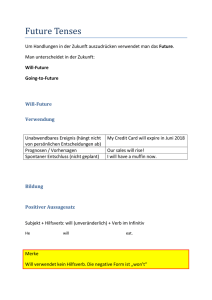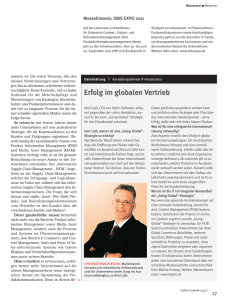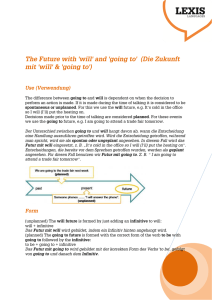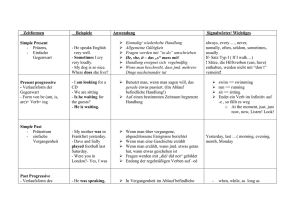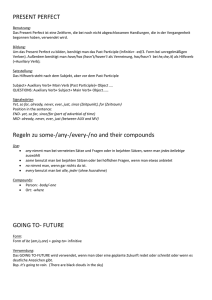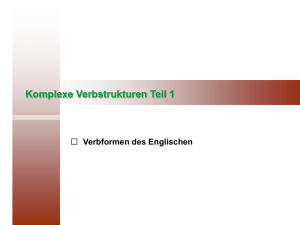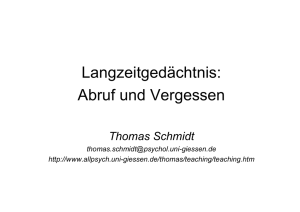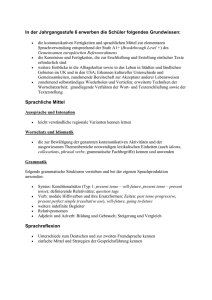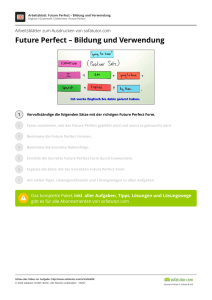Will- future und des Going-to
Werbung
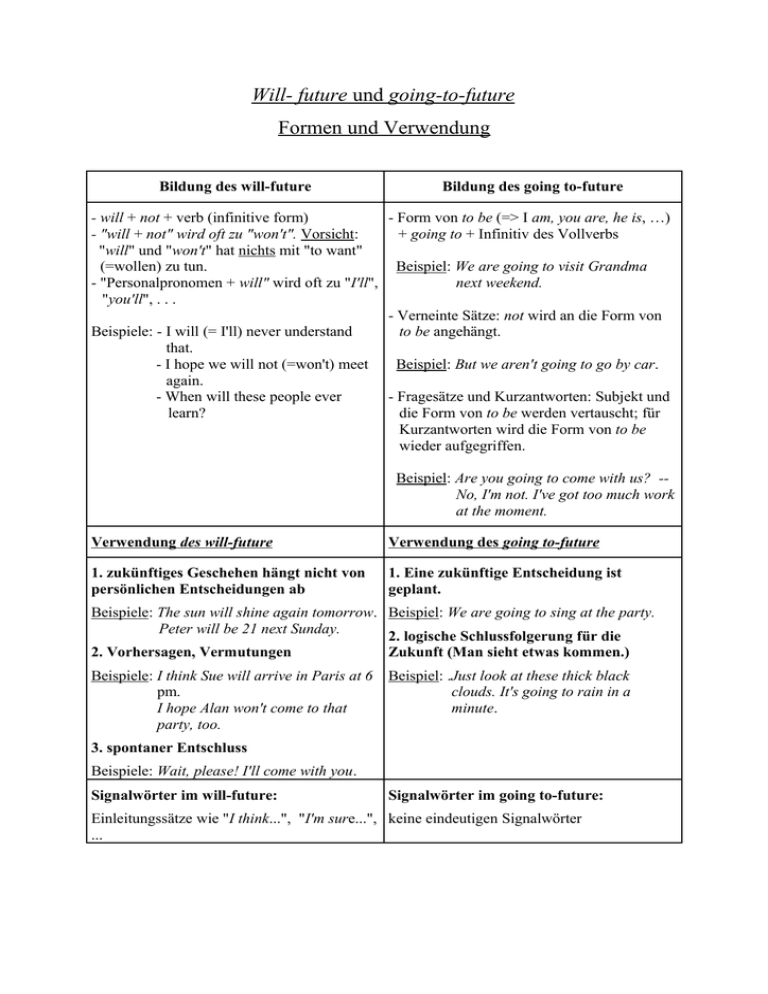
Will- future und going-to-future Formen und Verwendung Bildung des will-future Bildung des going to-future - will + not + verb (infinitive form) - Form von to be (=> I am, you are, he is, …) - "will + not" wird oft zu "won't". Vorsicht: + going to + Infinitiv des Vollverbs "will" und "won't" hat nichts mit "to want" (=wollen) zu tun. Beispiel: We are going to visit Grandma - "Personalpronomen + will" wird oft zu "I'll", next weekend. "you'll", . . . - Verneinte Sätze: not wird an die Form von Beispiele: - I will (= I'll) never understand to be angehängt. that. - I hope we will not (=won't) meet Beispiel: But we aren't going to go by car. again. - When will these people ever - Fragesätze und Kurzantworten: Subjekt und learn? die Form von to be werden vertauscht; für Kurzantworten wird die Form von to be wieder aufgegriffen. Beispiel: Are you going to come with us? -No, I'm not. I've got too much work at the moment. Verwendung des will-future Verwendung des going to-future 1. zukünftiges Geschehen hängt nicht von persönlichen Entscheidungen ab 1. Eine zukünftige Entscheidung ist geplant. Beispiele: The sun will shine again tomorrow. Beispiel: We are going to sing at the party. Peter will be 21 next Sunday. 2. logische Schlussfolgerung für die 2. Vorhersagen, Vermutungen Zukunft (Man sieht etwas kommen.) Beispiele: I think Sue will arrive in Paris at 6 pm. I hope Alan won't come to that party, too. Beispiel: .Just look at these thick black clouds. It's going to rain in a minute. 3. spontaner Entschluss Beispiele: Wait, please! I'll come with you. Signalwörter im will-future: Signalwörter im going to-future: Einleitungssätze wie "I think...", "I'm sure...", keine eindeutigen Signalwörter ...
